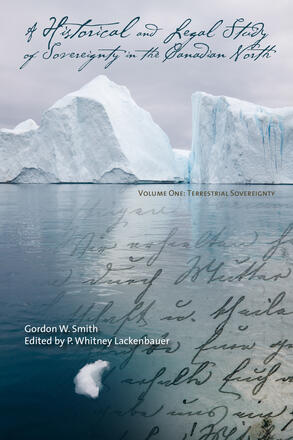
A Historical and Legal Study of Sovereignty in the Canadian North
Terrestrial Sovereignty, 1870-1939
La description
Dr. Gordon W. Smith dedicated much of his life to researching Canada's sovereignty in the Arctic. This first volume of his work provides the most comprehensive documentation yet available on the post-Confederation history of Canadian sovereignty in the north.
Récompenses
- Winner, NASOH John Lyman Book Award for Canadian Naval and Maritime History 2014
- Winner, Canadian Nautical Research Society Keith Matthews Award 2015
- Winner, BPAA Alberta Book Publishing Award for Scholarly and Academic Book 2015
Reviews
I strongly recommend this present volume to all Canadians and others interested in issues of Canadian Sovereignty in the Arctic
—Colonel (Ret'd) Brian K. Wntzell, Canadian Naval Review
One of the most comprehensive and detailed histories of Canada’s Arctic sovereignty.
—Adam Lajeunesse, Canadian Journal of History